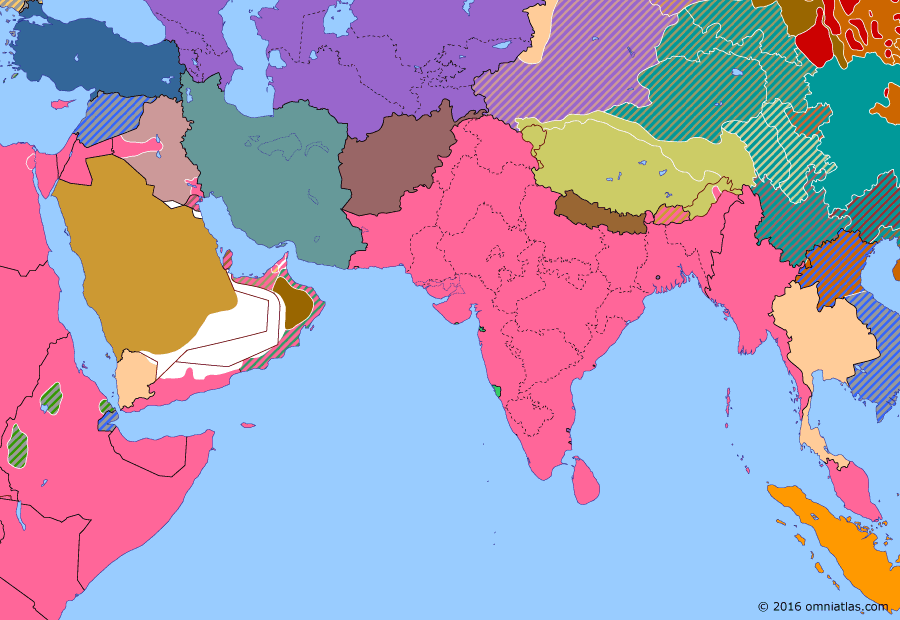Southern Asia 1941: Anglo–Iraqi War
22 May 1941
22 May 1941
World War II: The Middle Eastern Theater
1880–1914 Pax Britannica
1914–1917 Great War in the Middle East
1917–1918 Fall of the Ottoman Empire
1918–1923 Anglo-French Overreach
1923–1934 Rising Nationalism
1934–1940 Arrival of the New Order
1940–1941 World War II: The Middle Eastern Theater
1941–1945 World War II: The South-East Asian Theater
1945–pres Independence
Anglo–Iraqi War
In April 1941 the British-backed government of Iraq was overthrown in a coup. The new government threatened the RAF bases in the country and requested German support. Britain responded by invading Iraq and reinstalling a friendly regime.
